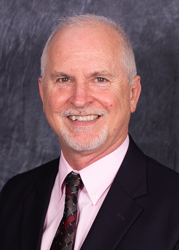
Professor
View Directory ListingDr. Patrick Slattery is Professor and Associate Department Head for Graduate Studies in the Department of Teaching, Learning & Culture in the College of Education and Human Development at Texas A&M University where he teaches courses in Philosophy of Education, Curriculum Theory, Social Foundations of Education, and Arts-Based Research. His books include: “Curriculum Development in the Postmodern Era” (Third Edition, Routledge, 2013); the co-authored text with Dana Rapp “Ethics and the Foundations of Education: Teaching Convictions in a Postmodern World” (Allyn and Bacon, 2003); the co-authored text “Understanding Curriculum” (Peter Lang Publishers, 1995); and the co-authored text “Contextualizing Teaching” (Addison-Wesley Longman, 2000). Dr. Slattery has published research articles in Harvard Educational Review, Journal of Curriculum Studies, Educational Theory, Qualitative Inquiry, Journal of Curriculum and Pedagogy, Journal of Teacher Education and Practice, JCT: Journal of Curriculum Theorizing, and Curriculum Inquiry. He is a former editor of JCT: Journal of Curriculum Theorizing and co-editor (with James Henderson of Kent State University) of The Journal of Curriculum and Pedagogy. Patrick Slattery is a past-president of the American Association for the Advancement of Curriculum Studies (AAACS), a member of Professors of Curriculum, the former chair of the Arts-Based Educational Research SIG of the American Educational Research Association (AERA), and a council member of the Curriculum and Pedagogy Group (C&P). He is also an artist, lecturer, and activist for social justice issues in organizations such as Austin Childrens’ Shelter, Queer Studies SIG of AERA, Campaign to End the Death Penalty (CEDP), and the Human Rights Campaign (HRC). The central theme of his work is the promotion of a just, compassionate, and ecologically sustainable global culture through holistic and reconceptualized approaches to curriculum, constructive postmodern understandings of education, queer studies in gender and sexuality, and Process philosophical visions of creativity and change. In his research he contends that spiritual, ethical, and social transformation is intimately linked to visual culture, public pedagogy, and aesthetics, and that wisdom can emerge in the artistic process.
314 Harrington Tower
- pslattery@tamu.edu
- (979) 845-8384

